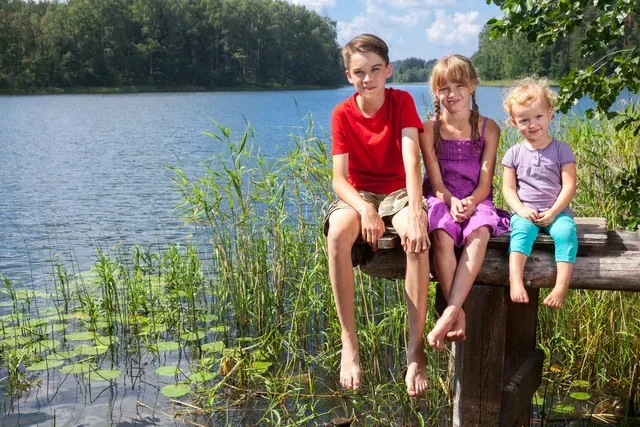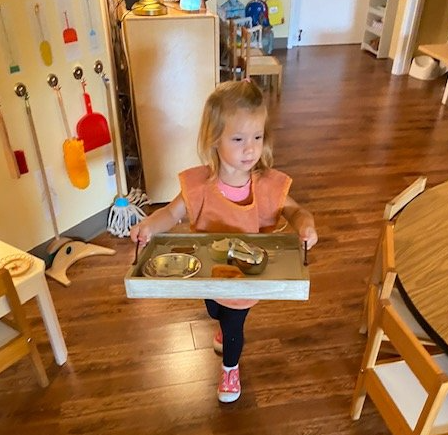Why Little Flower Montessori School?
We Emphasize More than Just Academics
We focus on curiosity, independence, compassion, collaboration, and critical thinking.
...but the Academics are a Huge Strength
Our curriculum presents skills at the time when children are most ready to learn.
We're a Community
We view our relationship with you as a partnership, working together for the benefit of your child.
We Meet Children Where They Are
We allow each child to move and learn at their own pace. We know that learning is not linear, and that children are not ready to learn specific skills according to an adult-prepared timeline, or in perfect harmony with their peers. Kids who need more support with certain skills get that support, and those who are ready to move ahead are able to find the challenges they crave.
Welcome to Little Flower Montessori
We invite you to join this special community and give your child the precious gift of a Montessori foundation for life.
Established in 1976, Little Flower Montessori School is the oldest Association Montessori Internationale (AMI) – Accredited Montessori school in the state of Florida. We serve children between the ages of 20 months and 12 years of age.
We are committed to a culture that fosters respect and compassion and honors the spirit of childhood. Montessori education is often described as “education for life” because Dr. Montessori’s vision encompassed so much more than basic academic skills. When your child joins our community he or she embarks upon an amazing journey of self-discovery and exploration. We celebrate each child’s individuality and help them discover how they can best contribute to our world and culture.
At Little Flower Montessori School our
warm and supportive teachers are more than just educators; they are
advocates for each child’s development and champions for their learning. Our timeless Montessori pedagogy reflects the
latest research in neuroscience which emphasizes the
importance of the first six years of life and the sensitive periods in which to develop particular aspects of the young child’s brain. We see our
intentionally prepared classroom community as a place where each student has opportunity to explore his or her
individual talents and interests
while being exposed to a
rich, in-depth and wide-ranging curriculum.
Our Programs
2 through 12 years old
“Best decision we ever made for our family!!! We could not be happier with the teachers as well as the other families who attend LFM.”
- Submitted by a parent
How to Apply
1. Request a Tour or Call us at (954)565-8205 to learn more.
Contact us to learn more about Montessori education.
2. Submit an Application
We look forward to getting to know you.
3. Join the Community!
Meet other new parents and connect with us on social media to get acquainted with our community.
Our Blog










